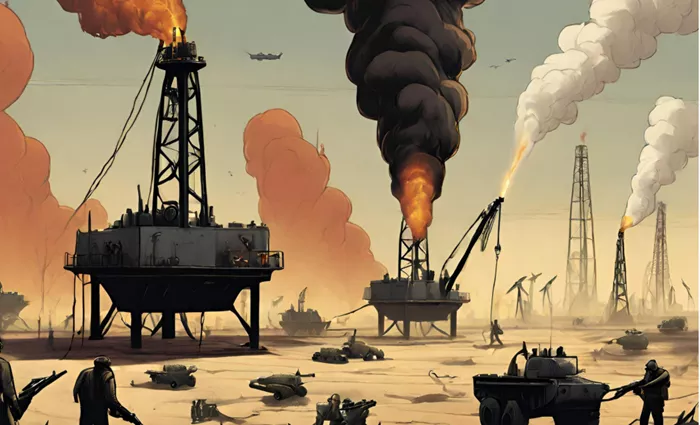Crude oil analysts are urgently revising their market forecasts amid escalating geopolitical tensions between Israel and Iran, as concerns over supply disruptions overshadow fundamental market factors.
Charu Chanana, Chief Investment Strategist at Saxo Markets, told that oil prices could surge toward $80 per barrel if conflicts in the Middle East intensify and supply risks materialize. However, she cautioned that increased production from OPEC+ may limit price gains and potentially raise oversupply concerns by autumn.
“In a worst-case scenario—such as a closure of the Strait of Hormuz or a disruption to Iran’s 2.1 million barrels per day in exports—the global oil supply and inflation expectations could face serious impacts,” Chanana added.
The latest developments indicate that Iran has launched over 100 drones against Israel in retaliation to Israeli airstrikes targeting uranium enrichment sites, ballistic missile factories, and senior military commanders. The Iranian Revolutionary Guards Corps also reported an Israeli missile strike on its headquarters, which reportedly killed top commander Hossein Salami.
Mukesh Sahdev, Head of Commodity Markets for Oil at Rystad Energy, highlighted that Iran’s potential retaliation and blockade of the Strait of Hormuz could significantly threaten crude oil supplies. Nonetheless, Sahdev believes that the ongoing conflict is unlikely to escalate into full-scale war, citing the United States’ preference for negotiation.
Similarly, Robert Rennie, Head of Commodity Research at Westpac, described Israel’s recent strikes as likely preemptive rather than the start of prolonged military engagement. “The key factor to monitor is Iran’s response,” Rennie told. He also noted the high risk of crude prices pushing beyond January’s highs heading into the weekend.
Meanwhile, the United States has sought to maintain a measured stance, emphasizing its focus on protecting American forces in the region rather than direct involvement in strikes. Secretary of State Marco Rubio stated, “We are not involved in strikes against Iran, and our top priority is protecting American forces. Israel advised us that this action was necessary for its self-defense.”
As tensions in the Middle East continue to escalate, the global oil market remains vulnerable to further shocks, underscoring the delicate balance between geopolitical risks and production dynamics.


